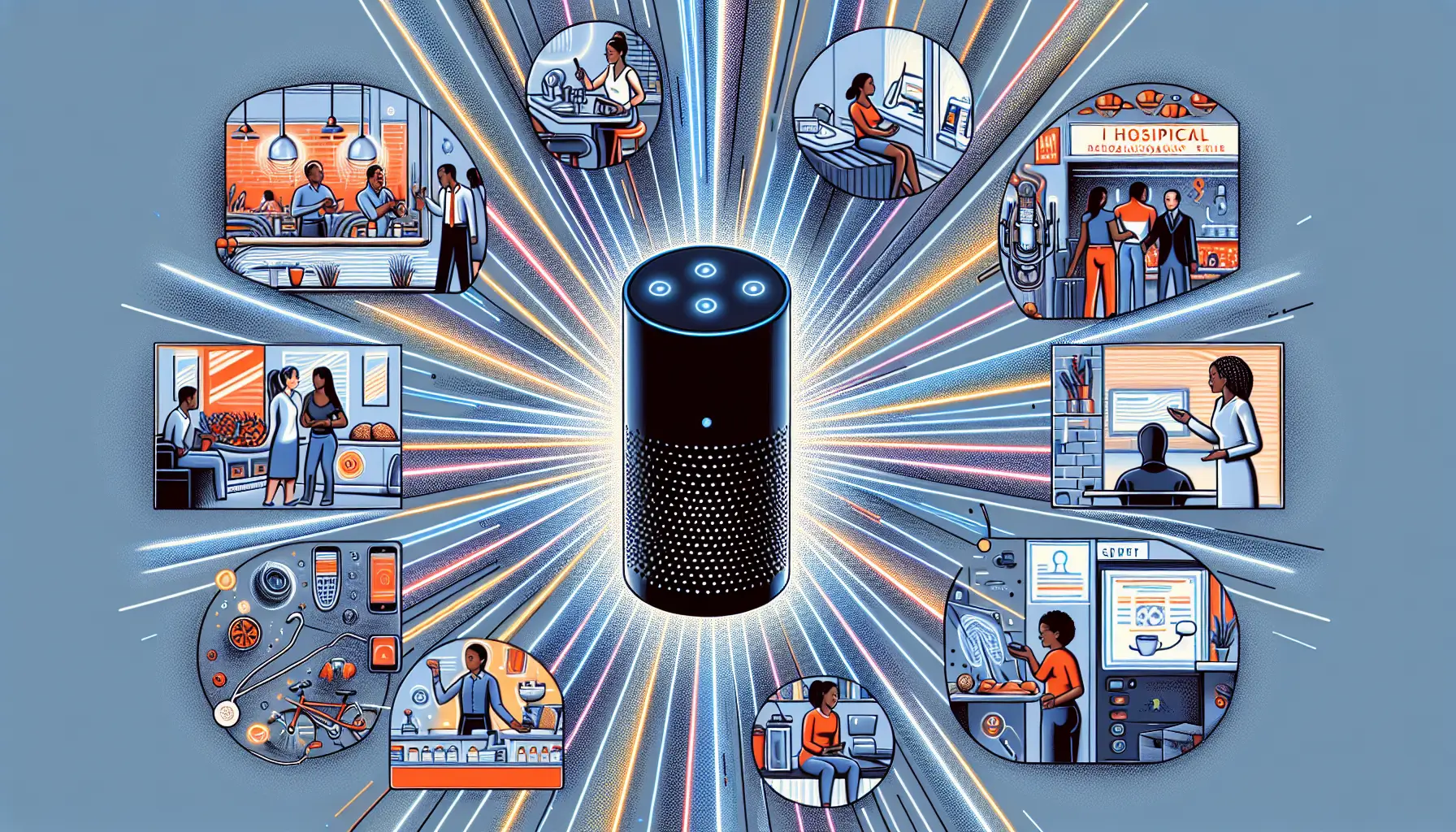In today’s competitive landscape, leveraging the best AI strategies for enhancing customer experience is not just an option but a necessity for businesses looking to stay ahead.
By integrating AI in customer experience, companies can revolutionize customer-brand interactions and enhance user experience, personalizing interactions, streamlining support, and anticipating customer needs, directly impacting and increasing customer satisfaction and loyalty.
This article will guide you through top AI-powered tactics, from chatbots and predictive analytics to sentiment analysis, all aimed at elevating your customer service to new heights.
Key Takeaways
- Hyper-personalization, driven by AI, is crucial for tailoring customer experiences to individual needs, which results in higher satisfaction, engagement, and loyalty. Continuously analyzing customer data helps provide real-time personalization and predict future needs.
- AI chatbots revolutionize customer support by handling queries simultaneously, reducing wait times, and offering round-the-clock assistance. They lead to cost savings, efficiency, and enhanced customer satisfaction by providing personalized support based on past interactions.
- Powered by AI, predictive analytics and sentiment analysis provide businesses with insights to anticipate customer needs and understand emotional feedback, shaping marketing strategies and product development and enhancing overall customer experiences.
Based on recent trends and research, here is a table summarizing the top AI strategies for enhancing customer experience in 2024:
| Strategy | Description |
|---|---|
| Proactive Service | AI tools predict customer needs and potential issues by analyzing data such as order history and behaviors, enabling businesses to offer solutions proactively (Zendesk). |
| Hyper-Personalization | AI-powered systems provide personalized experiences by understanding customer preferences and history, improving interactions and satisfaction (Zendesk) (CMSWire). |
| Empathetic AI Interactions | Integrating AI with human empathy to deliver personalized care where AI handles routine inquiries, allowing human agents to focus on complex customer needs (CMSWire). |
| Enhanced Self-Service Options | AI chatbots provide 24/7 access to information, enabling self-service capabilities such as booking, tracking, and customer support, thereby empowering customers (IBM – United States). |
| Ethical AI Use | Transparent and responsible AI usage is emphasized, building customer trust by being open about data handling and algorithmic decisions (CMSWire). |
| Intelligent Automation | AI automates repetitive tasks and enhances agent efficiency, allowing focus on high-value interactions. This includes AI-driven routing and triage of customer inquiries (Zendesk). |
| Immersive Experiences with AR/VR | Businesses use AR and VR to create memorable, engaging customer interactions beyond conventional service, enhancing the overall experience (Radarr). |
| Sentiment Analysis | AI analyzes emotional cues from customer interactions, enabling businesses to respond with appropriate empathy and personalization, fostering a better connection (Radarr). |
| Data-Driven Insights | Leveraging vast customer data, AI helps craft highly tailored experiences and predict future behaviors, significantly enhancing the personalization of services (Radarr). |
| Seamless Omnichannel Support | AI integrates various communication channels, providing a cohesive customer journey across platforms and ensuring consistent and informed customer interactions (Radarr). |
These strategies illustrate a broad commitment to leveraging AI to streamline operations and profoundly enrich the customer’s interaction with a brand, leading to enhanced satisfaction and loyalty.
Hyper-Personalization: Tailoring Customer Experiences

Hyper-personalization is a game-changing strategy that leverages AI to customize customer experiences based on individual preferences. By analyzing customer data, AI can tailor each interaction to the customer’s unique needs and preferences, increasing customer satisfaction, engagement, and sales conversion rates.
This approach is not merely theoretical; it’s already been proven in practice by industry giants such as Amazon and Spotify. These companies have successfully harnessed the power of AI to provide personalized experiences like product recommendations and individualized playlists, leading to exceptional customer experiences and increased customer retention and loyalty.
Crucially, a successful hyper-personalization strategy is underpinned by a customer-centric AI strategy. This involves a commitment to customer satisfaction and delivering personalized content and experiences.
By putting the customer at the center of their business strategy, businesses can ensure that all interactions are tailored to each customer’s unique needs and preferences, thereby maintaining high customer satisfaction.
Understanding Customer Behavior
To create truly personalized experiences, businesses need to understand their customers deeply. This is where AI comes in. AI can analyze customer interactions, demographics, and purchase history to identify behavior patterns and preferences.
Such analysis allows businesses to create unique customer profiles, which can be used to tailor content such as product recommendations and targeted ads. This enhances the customer experience, drives customer engagement, and increases overall customer satisfaction.
Moreover, businesses can transform each customer interaction into valuable insights, improving content relevance and engagement to enhance customer experience. Companies can anticipate customer needs, tailor their marketing strategies, and deliver a truly personalized service by understanding customer behavior.
This enhances the customer experience, increases customer loyalty, and drives customer engagement throughout the customer journey.
Real-Time Personalization
Real-time personalization is another powerful AI strategy that can significantly enhance the customer experience. This approach modifies the user experience instantaneously based on individual customer actions. AI integrates data from different channels to ensure each customer’s seamless and personalized experience.
AI chatbots are a prime example of real-time personalization in action. These AI-powered tools enhance the customer experience by:
- Offering personalized interactions
- Suggesting options that reflect the unique preferences of each customer
- Increasing the effectiveness of customer issue resolution through real-time data analysis
- Allowing businesses to provide more personalized and satisfactory responses
AI-powered tools can also scrutinize social media platforms, gathering real-time and analyzing customer sentiment, sentiments, and feedback, further contributing to personalized customer engagement.
AI Chatbots: Streamlining Customer Support

AI chatbots have emerged as a powerful tool for enhancing customer support. These AI-powered tools are capable of:
- Handling multiple queries simultaneously
- Reducing wait times
- Enhancing customer interactions
- Offering instant support around the clock
This enhances overall customer satisfaction.
Moreover, AI chatbots contribute to increased revenue by learning to understand customer behavior and preferences during interactions and suggesting promotions and new products, thereby boosting sales. The chatbots harness past interactions for context, ensuring consistent, accurate, and satisfactory customer support.
Implementing chatbots has also led to considerable cost savings, reduced agent workloads, automated capture of customer details, and overall improvements in efficiency.
Benefits of AI Chatbots
AI chatbots offer a myriad of benefits, including:
- Operating 24/7, assisting customers at any time
- Improving customer service satisfaction through constant availability
- Leading to cost efficiency by augmenting support staff without the need to increase the number of human agents.
Moreover, businesses can promptly respond to customer queries, concerns, or complaints, demonstrating their commitment to maintaining customer satisfaction. In addition, customer service objectives can aim to:
- Free up agent capacity by automating many inquiries with an AI assistant.
- Manage routine tasks with AI chatbots, allowing human agents to focus on more complex issues.
- Improve operational efficiency.
Best Practices for Implementing Chatbots
Implementing AI chatbots effectively requires a strategic approach. Here are some steps to follow:
- Set clear objectives for the chatbot implementation.
- Understand the queries the bot can handle and train staff to work alongside the chatbot.
- Ensure that the chatbot is effectively integrated into the customer service process.
- Train the chatbot to handle customer queries efficiently and accurately.
By following these steps, businesses can successfully implement AI chatbots and artificial intelligence to improve their customer service process.
Moreover, integrating AI chatbots with existing customer service channels is crucial for ensuring a seamless experience for customers across different interaction points. It is also essential to regularly monitor the performance of AI tools to optimize their effectiveness.
By tracking the success of AI integrations, businesses can make data-informed adjustments for the future, ensuring continual improvement in their AI-driven customer experience strategy.
Predictive Analytics: Anticipating Customer Needs

Predictive analytics is another powerful AI tool that can significantly enhance customer experiences. This approach applies AI-powered algorithms to analyze customer data, revealing patterns and tendencies that can be used to envisage customer needs and preferences.
By leveraging past interactions, browsing habits, and purchasing records, AI predictive analytics enables real-time content customization and fosters personalized experiences.
Moreover, predictive analytics allows businesses to:
- Make more informed decisions
- Utilize insights from customer interaction history and market trends
- Proactively identify users at high risk of churn
- Improve customer service and experience
- Anticipate customer needs
- Tailor marketing strategies
- Deliver a truly personalized service
Applications in Marketing
Predictive analytics has wide-ranging applications in marketing. It can be used to:
- Identify patterns in consumer behavior
- Predict future consumer trends
- Guide marketers in planning their strategies
- Enhance segmentation and targeting by recognizing nuanced relationships within customer data
- Allow for more personalized marketing campaigns
Moreover, marketers use predictive analytics for:
- Forecasting which marketing messages will resonate with individual customers
- Determining the optimal timing for campaigns
- Reducing customer churn by identifying patterns of disengagement and targeting at-risk customers with re-engagement strategies
With the decline of third-party cookies, predictive analytics becomes crucial in personalizing marketing efforts using in-depth analysis to collect data from first- and third-party data.
Furthermore, predictive analytics supports creating an omnichannel customer experience by leveraging data from customer interactions across various touchpoints.
Enhancing Product Development
AI also plays a significant role in enhancing product development within the retail industry. By tracking and analyzing customer behavior and purchase history, AI helps create products tailored to customer preferences. This improves the customer experience, drives engagement, and increases overall customer satisfaction.
Moreover, the strategic application of AI in product development leads to a higher return on investment (ROI) and elevates customer satisfaction levels. By understanding customer behavior, businesses can anticipate customer needs, tailor product development strategies, and deliver exceptional customer experiences and a truly personalized service. This enhances the customer experience, increases customer loyalty, and drives customer engagement.
Voice Assistants: Revolutionizing Customer Interactions

Voice assistants revolutionize customer interactions by providing hands-free access to information and services. Whether in banking, retail, or healthcare, voice assistants make it easier for customers to access their needed services. In the banking sector, for instance, voice assistants deliver 24/7 services like balance checks, fund transfers, and appointment scheduling, catering to customers outside traditional business hours.
In the retail sector, StarbucksStarbucks’sbarista exemplifies using voice assistants by offering personalized recommendations based on consumer preferences and location data. By providing instant, convenient support and assistance, voice assistants save time and simplify service accessibility, enhancing the customer experience.
Natural Language Processing
Natural Language Processing (NLP) is a key technology that enables voice assistants to interpret human language. Along with machine learning algorithms, predictive analytics, and robotic process automation, NLP is deployed in AI Customer Experience to provide personalized assistance, improving the customer experience through tailored interactions.
By interpreting human language, NLP facilitates the ability of voice assistants to:
- Understand commands given by users
- Enhance accuracy and efficiency
- Provide personalized assistance based on the unique needs and preferences of each customer.
The Future of Voice Assistants
The future of voice assistants looks promising, with significant improvements in multilingual support on the horizon. AI-based translator tools currently provide support in over 17 languages, which is set to increase in the future.
The expansion of multilingual support in voice assistants has the potential to enhance customer experiences Greatly.
- Catering to a more diverse user base
- Interpreting multiple languages
- Providing personalized assistance to customers from diverse linguistic backgrounds
- We are enhancing the inclusivity and accessibility of customer experiences.
Sentiment Analysis: Gaining Insights from Customer Feedback

Sentiment analysis is another powerful AI tool that analyzes customer feedback to determine sentiment and identify areas for service improvement. By employing advanced algorithms, AI sentiment analysis can detect a broad spectrum of sentiments and analyze customer feedback, such as:
- satisfaction
- dissatisfaction
- trust
- disappointment
This reflects nuanced customer emotions.
The insights garnered through AI sentiment analysis enable businesses to promptly address customer issues and understand needs and preferences, leading to more targeted improvements in the customer experience. By interpreting complex human emotions and opinions, AI sentiment analysis facilitates strategic decisions to enhance and improve customer satisfaction and experiences.
Analyzing Reviews and Social Media
AI sentiment analysis tools continuously monitor various platforms, offering a comprehensive view of customer sentiments. These tools extract customer sentiment, emotion, and intent from voice and text data, which is crucial for understanding customer conversations.
By identifying areas that need proactive strategies to align with customer expectations, AI sentiment analysis enables companies to make AI improve customer service continuously. For instance, SurveySparSurveySparrow’s features help businesses transform how they gather and interpret customer feedback, making insights actionable.
Ethical Considerations
When integrating AI into customer experience strategies, ethical considerations are paramount. Here are some key considerations to keep in mind:
- Data privacy should be a top priority to maintain trust and adhere to regulations.
- AI systems, notably those used for sentiment analysis, must be scrutinized for biases that could skew insights and customer interactions.
- Corrective measures should be implemented to address any biases and ensure fair and unbiased customer experiences.
By considering these ethical considerations, businesses can ensure that their AI-powered customer experiences are effective and responsible.
Moreover, businesses must commit to using AI ethically, ensuring that their applications are transparent in collecting, analyzing, and acting on customer data. By embracing their responsibility to utilize AI to enhance the customer experience in a manner that respects customers’customers’d needs, businesses can ensure the ethical use of AI.
Integrating AI into Customer Experience Strategy
Integrating AI into a customer experience strategy involves setting clear objectives, ensuring data quality and security, and fostering human-AI collaboration. AI customer service chatbots, for instance, are equipped with capabilities such as self-service, routine task automation, and escalation to human agents, which stem from natural language processing and machine learning technologies.
A structured customer experience strategy should set clear objectives for AI implementation, as demonstrated by platforms like Yuma AI while ensuring data security and offering actionable insights from collected data. To ensure continual improvement in the AI-driven customer experience strategy, it’s crucial to track the success of AI integrations and be ready to make data-informed adjustments for the future.
Setting Clear Objectives
Setting clear objectives is a crucial first step when implementing AI tools in a customer experience strategy. Objectives for AI in AI customer experience solutions should be detailed with specific outcomes and use action-oriented language. To define customer service OKRs for AI integration, they should be SMART:
- Specific
- Measurable
- Achievable
- Relevant
- Time-bound
Moreover, customer service objectives should include:
- Maintaining a high Customer Satisfaction Score (CSAT), which is a measurable way to gauge customer satisfaction
- Effectively integrating AI tools into the customer service process
- Handling customer queries efficiently and accurately
By setting clear objectives, businesses can ensure that their AI tools are effectively integrated into the customer service process and can handle customer inquiries and queries efficiently and accurately.
Data Quality and Security
Ensuring high data quality and security is essential in AI tools to achieve unbiased insights and facilitate the need for regular updates. Data-driven objectives should utilize insights gathered from systematic tracking to pinpoint areas where enhancement is necessary.
By ensuring data quality and security, businesses can ensure that their AI tools provide accurate and reliable insights. Moreover, companies can maintain customer trust and comply with data protection regulations by ensuring data privacy.
Human-AI Collaboration
Integrating AI into a customer experience strategy should also foster human-AI collaboration. This can ensure a balance in customer experience artificial intelligence, between automation and personalized attention in customer experience.
For instance, AI voice assistants are evolving towards managing more complex interactions, such as providing customized banking advice, indicating a shift towards more sophisticated human-AI collaboration in customer service.
By fostering human-AI collaboration, businesses can ensure that AI tools are effectively integrated into the customer service process. This enhances the efficiency and accuracy of customer service and ensures that customers receive personalized attention.
Overview
In conclusion, AI is an incredible tool that helps businesses revolutionize customer experiences. From hyper-personalization and AI chatbots to predictive analytics and voice assistants, AI empowers enterprises to deliver exceptional, personalized customer experiences.
By setting clear objectives, ensuring data quality and security, and fostering human-AI collaboration, companies can effectively integrate AI into their customer experience strategies, increasing customer satisfaction, engagement, and loyalty.
As we move into the future, the role of AI in enhancing customer experiences will only continue to grow, offering exciting opportunities for businesses to connect with their customers in new and meaningful ways.
Frequently Asked Questions
How does AI enhance customer experiences?
AI enhances customer experiences by providing hyper-personalization, AI chatbots, predictive analytics, and voice assistants, which analyze customer data, understand behavior, provide real-time personalization, streamline customer support processes, anticipate customer needs, and revolutionize customer interactions.
How does AI contribute to hyper-personalization?
AI contributes to hyper-personalization by analyzing customer data to deliver personalized content and experiences based on behavior patterns and preferences. This allows for a more tailored and effective customer experience.
What are the benefits of AI chatbots?
AI chatbots provide 24/7 support, reduce wait times, offer personalized interactions, and contribute to increased revenue by suggesting promotions and new products, making them valuable for businesses.
How is predictive analytics used in marketing?
Predictive analytics is used in marketing to identify consumer patterns, analyze customer behavior, improve segmentation and targeting, and forecast the effectiveness of marketing messages. This helps businesses tailor their strategies for better results.
What ethical considerations are there when integrating AI into customer experience strategies?
When integrating AI into customer experience strategies, it’s crucial to prioritize data privacy, address potential biases in AI systems, and commit to transparent and ethical use of AI to uphold customer trust and safety. These considerations are essential for responsible and successful AI integration into customer experience examples.







